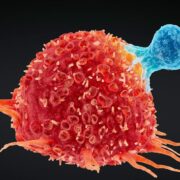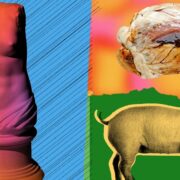
The Case of the Incredibly Long-Lived Mouse Cells
Scientists kept the rodents’ immune T cells active four times longer than mice can live—with huge implications for cancer, vaccination, and aging research. ..

Scientists kept the rodents’ immune T cells active four times longer than mice can live—with huge implications for cancer, vaccination, and aging research. ..

Google Research spinout Osmo wants to find substitutes for hard-to-source aromas. The tech could inspire new perfumes—and help combat mosquito-borne ..

Humanity’s peculiar gait has long confounded engineers and biomechanists—but it might be one of nature’s clever tricks. ..

A new study shows that as temperatures drop, nasal cells release fewer of the tiny protectors that bind and neutralize invading germs. ..

2022 was a breakthrough year for xenotransplantation, a procedure that could be a lifeline for patients in desperate need of a donor. ..

Whale-sized shonisaurs dominated the ocean 230 million years ago. A fossil cluster offers a fascinating glimpse at how they lived—based on where they ..

To sharpen its command over precise maneuvers, the brain uses comparisons between control signals—not the signals themselves. ..

Researchers are trying to understand what drives the algal blooms that tinge ice—and have implications for the drought-stricken American West’s water ..

How did a lunch last underwater for 10 months? The answer relates to how carbon moves in the deep sea, and has implications for fighting climate change. ..

While biologists still aren't exactly sure how it works, a new study closes in on why the insects that pester Savannah animals zig when anything zags. ..